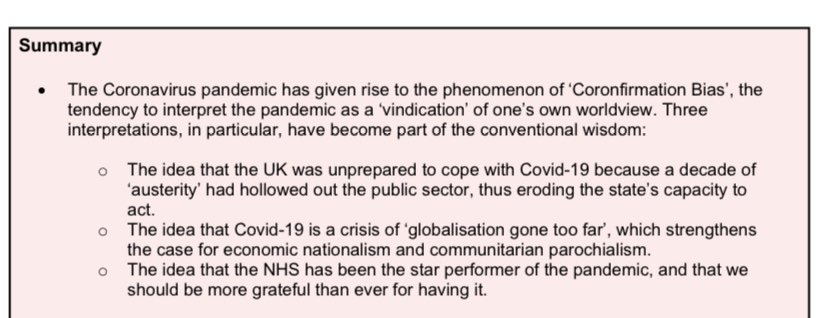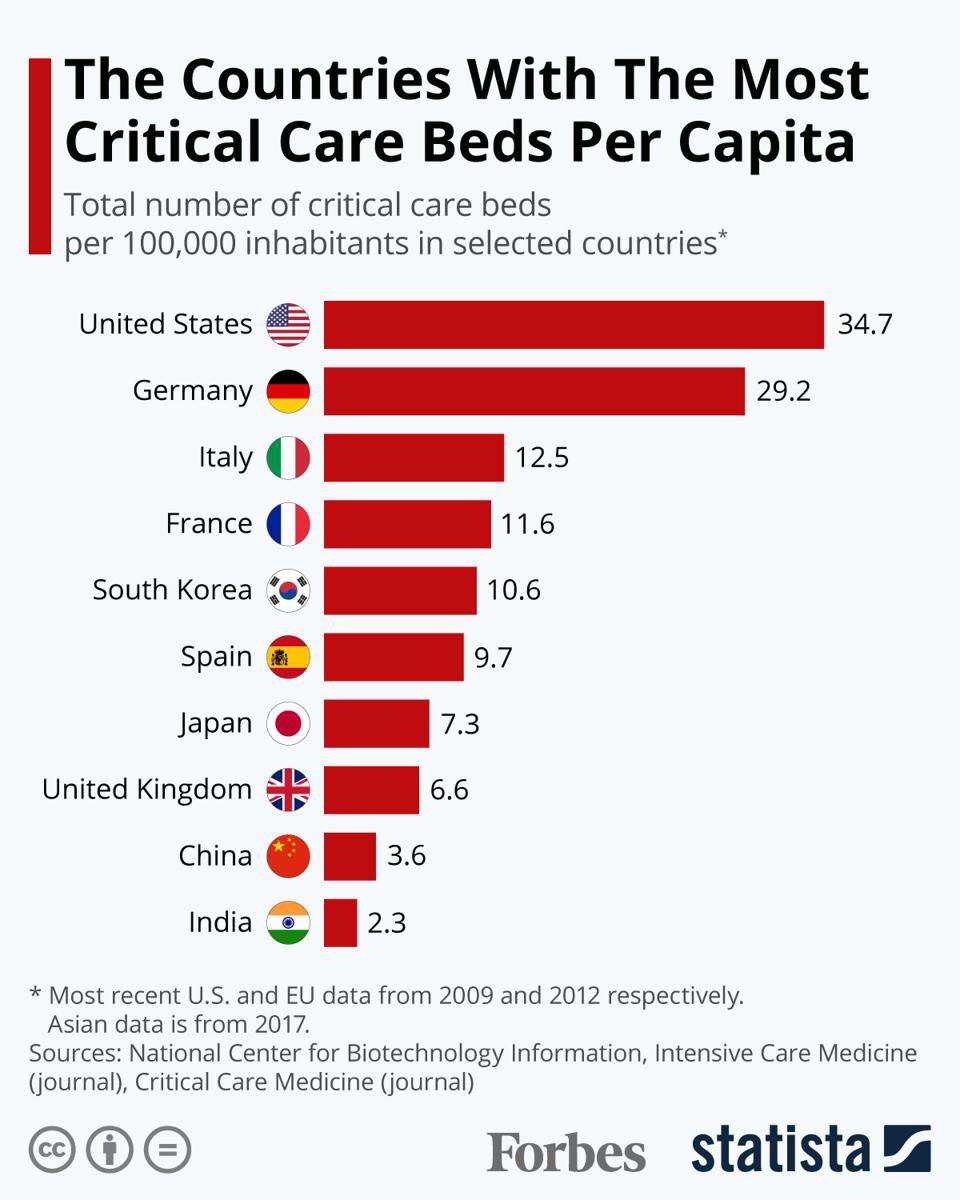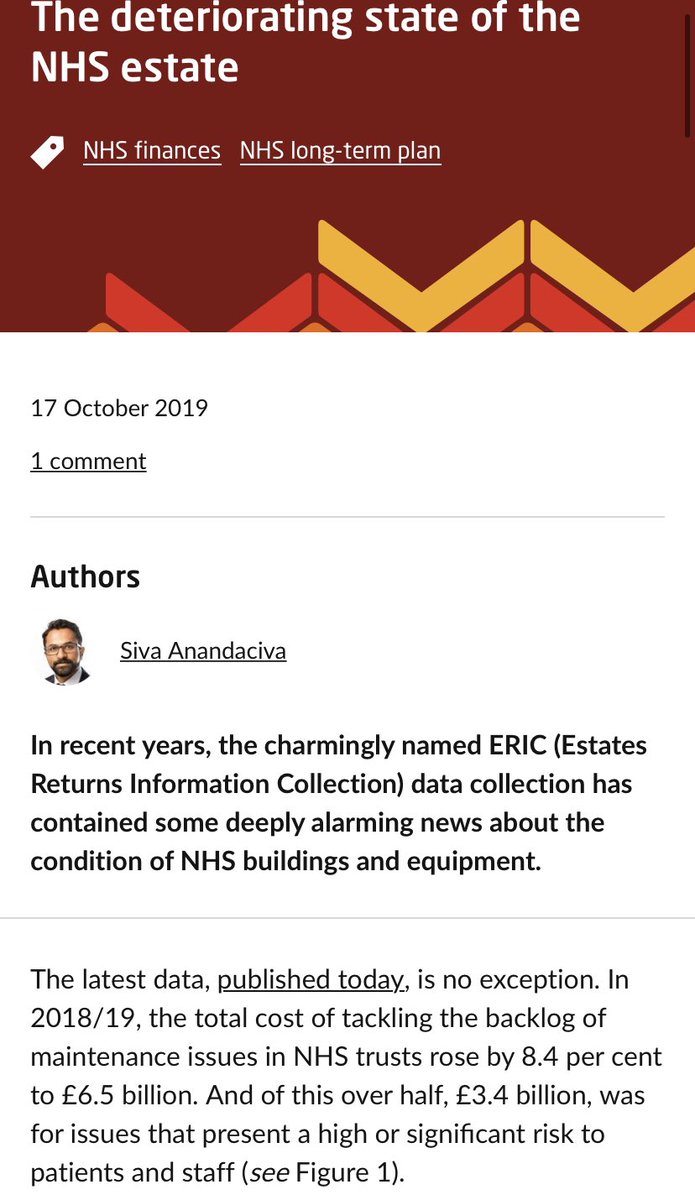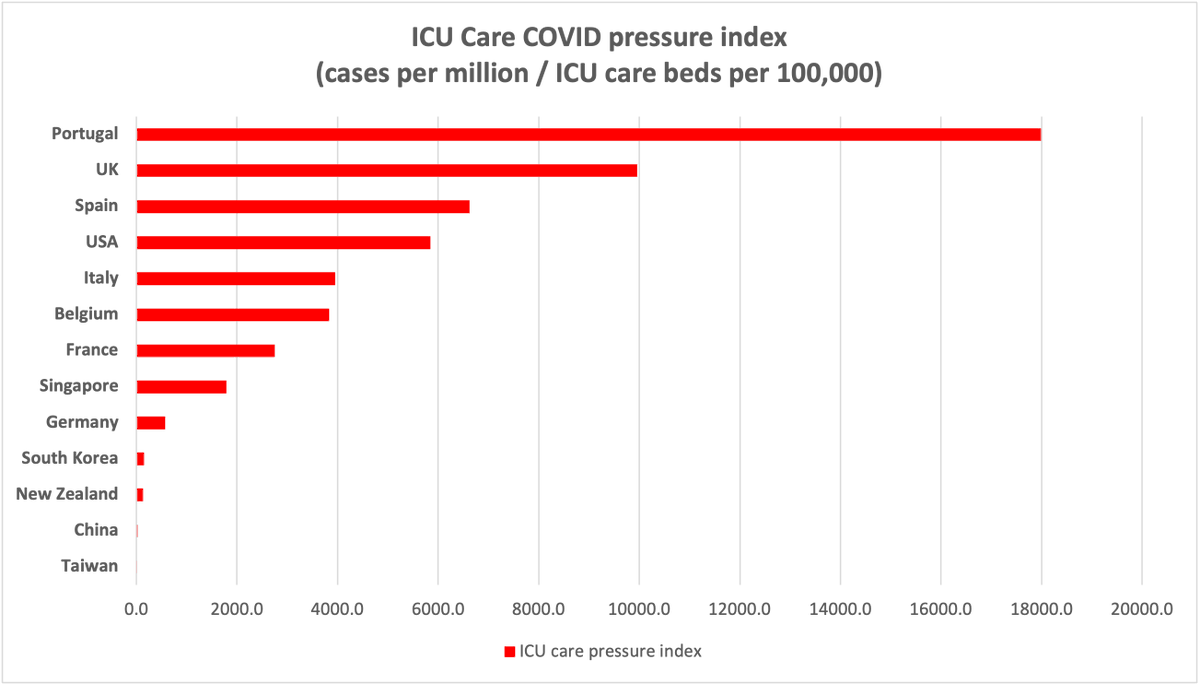I’ve read this report from @iealondon and @K_Niemietz about the NHS “being nothing special”.
At best, it’s a bit silly. At worst, well, I can’t really repeat that.
Anyway, let’s take a look through it. /thread https://iea.org.uk/publications/viral-myths-why-we-risk-learning-the-wrong-lessons-from-the-pandemic/
At best, it’s a bit silly. At worst, well, I can’t really repeat that.
Anyway, let’s take a look through it. /thread https://iea.org.uk/publications/viral-myths-why-we-risk-learning-the-wrong-lessons-from-the-pandemic/
Here’s the summary page, the 3 top ideas are:
- Austerity had no effect on the U.K. preparedness for COVID
- COVID is not a crisis of globalism
- the NHS is not a star performer of the pandemic.
From the top then. /2
- Austerity had no effect on the U.K. preparedness for COVID
- COVID is not a crisis of globalism
- the NHS is not a star performer of the pandemic.
From the top then. /2
Is Austerity a factor in preparedness for the COVID-19 pandemic?
Well, we have the lowest number of ITU beds per capita in the world ... /3
Well, we have the lowest number of ITU beds per capita in the world ... /3
... and general hospital beds have been steadily falling since 2000, with a large drop around 2010/11
As well as a steady buildup of staffing and infrastructure backlogs.
40,000 nurse vacancies and £6bn of hospital maintenance left undone ...
So severely understaffed and crumbling (literally) hospitals.
https://www.bbc.co.uk/news/av/uk-39913481
40,000 nurse vacancies and £6bn of hospital maintenance left undone ...
So severely understaffed and crumbling (literally) hospitals.
https://www.bbc.co.uk/news/av/uk-39913481
Also a pandemic requires some sort of safety net for everyone in order to achieve compliance for self-isolation etc.
The U.K. has become increasingly financially insecure pre-pandemic, with up to 70% struggling financially: https://www.google.co.uk/amp/s/amp.theguardian.com/money/2018/jan/25/uk-workers-chronically-broke-study-economic-insecurity
The U.K. has become increasingly financially insecure pre-pandemic, with up to 70% struggling financially: https://www.google.co.uk/amp/s/amp.theguardian.com/money/2018/jan/25/uk-workers-chronically-broke-study-economic-insecurity
And public health spending was cut by around 15% since 2013: https://www.kingsfund.org.uk/projects/nhs-in-a-nutshell/spending-public-health
So all in all, yes austerity made the U.K. very vulnerable to both a healthcare crisis AND an economic one.
Next, globalisation.
Not really my bag, but I will say without a change in how we travel, move freely and live in cities, another viral pandemic is inevitable. Sorry.
Next, globalisation.
Not really my bag, but I will say without a change in how we travel, move freely and live in cities, another viral pandemic is inevitable. Sorry.
Lastly the NHS.
This is where it gets quite silly.
Trying to say anything about a healthcare system in a pandemic is a nonsense - it’s like complaining about the function of an ice cream stand after a tsunami, but it does ask the question- how did specifically the NHS do?
This is where it gets quite silly.
Trying to say anything about a healthcare system in a pandemic is a nonsense - it’s like complaining about the function of an ice cream stand after a tsunami, but it does ask the question- how did specifically the NHS do?
Firstly, a healthcare cannot control the number of cases it receives, that's public health and govt policy controls.
Similarly, different healthcare systems have different resources to deal with increased pressures...
Similarly, different healthcare systems have different resources to deal with increased pressures...
Some countries had very few cases and great healthcare resources, and some had very many cases and little resource.
Using this metric of cases/beds as an 'pressure index', the NHS faced one of the worst situations in ICU and acute care in the world.
Using this metric of cases/beds as an 'pressure index', the NHS faced one of the worst situations in ICU and acute care in the world.
And this pressure correlates closely with excess deaths - which makes sense. The more cases, the less resource to deal with it, and once that threshold is overwhelmed, the more deaths.
And despite this immense pressure, the UK recorded an ICU national mortality of 39%, which is comparable to anywhere in the world.
And unlike as the paper suggests, the NHS didn't CHOOSE COVID over non-COVID. It could only prioritise the sickest patients, with COVID, over less sick patients. Choosing, as ever, life.
Lastly, over 850 healthcare workers have died in this crisis. We could’ve done many things differently in this pandemic, but it’s profoundly disrespectful to criticise staff and the service that’s coped with so much and had so many sacrifices. https://nursingnotes.co.uk/news/over-850-health-and-social-care-workers-have-now-died-of-covid-19/
And typically without irony, in a paper criticising the 'confirmation bias' of others, a life-long critic of the NHS and the funding system finds the NHS is 'nothing special' and somehow this is related to it being publicly funded.
Which, as you can see, is frankly bollocks.
Which, as you can see, is frankly bollocks.
In fact, there isn’t a single constructive suggestion in 37 pages, what “lesson” are we actually trying to learn?
So what do I think the paper is actually for?
1) To create a lot of outrage.
2) ...and in the event of future panic-buying, could be used for toilet paper.
/end
So what do I think the paper is actually for?
1) To create a lot of outrage.
2) ...and in the event of future panic-buying, could be used for toilet paper.
/end

 Read on Twitter
Read on Twitter






